Nationaal onderzoekscentrum voor chemische bouwstenen in de steigers
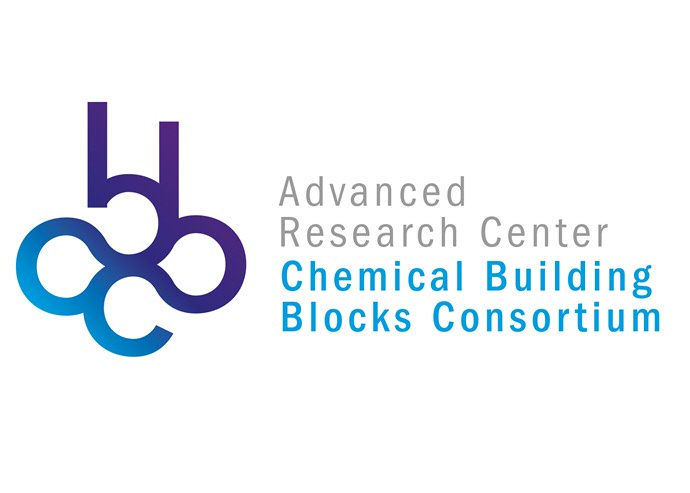
AkzoNobel, BASF, Shell, het Ministerie van Economische Zaken, de Topsector Chemie, NWO en de universiteiten van Utrecht, Eindhoven en Groningen hebben vandaag hun plannen gepresenteerd voor de oprichting van het nieuwe Advanced Research Center Chemical Building Blocks Consortium (ARC CBBC). Dit nationale onderzoekscentrum zal belangrijke energie- en chemievraagstukken aanpakken die gepaard gaan met het groeiende beroep op de eindige voorraad grondstoffen. De partners geven een meerjarig commitment af en streven naar een gezamenlijke investering van 11 miljoen euro per jaar, oftewel 80 à 100 banen in de kennisindustrie. “Hiermee versterken we ook onze concurrentiepositie”, aldus minister Kamp. “Het bevordert de economische groei en het levert nieuwe banen op.”
De Verenigde Naties verwachten dat de wereldbevolking tegen 2050 toeneemt tot ongeveer 9 miljard mensen. Deze groei doet een zwaar beroep op de voorraad grondstoffen, zoals olie en metalen, en vormt een uitdaging voor de duurzaamheid, en voor de leefbaarheid in stedelijke gebieden, waar naar schatting 70% van de wereldbevolking zal wonen. Het vinden van oplossingen is een grote uitdaging, waarvoor grensverleggend multidisciplinair onderzoek en nieuwe samenwerkingsverbanden nodig zijn. Daarom slaan de overheid, universiteiten en het bedrijfsleven de handen ineen in het Advanced Research Center Chemical Building Blocks Consortium.
Industriële en academische sterktes
Het ARC CBBC brengt industriële en academische sterktes die Nederland te bieden heeft op het vlak van katalyse, synthese, macromoleculaire chemie en procestechnologie bij elkaar, en verbindt daarmee landelijk verschillende interdisciplinaire expertises aan Nederlandse kennisinstellingen met elkaar en met het bedrijfsleven. Academische toponderzoekers uit verschillende expertisegebieden gaan in dit onderzoekscentrum nauw samenwerken met het bedrijfsleven aan duurzame oplossingen op de middellange en lange termijn, zoals nieuwe chemische processen en bouwstenen voor functionele materialen, coatings en energiedragers. De partijen zullen niet alleen bilateraal optrekken, maar ook gezamenlijk aan innovatie werken in een open samenwerking.
Duurzame productiemethoden
Met de alsmaar groeiende wereldbevolking staat de wereld voor een grote uitdaging om een duurzame oplossing te vinden voor uitputtende grondstoffen en tegelijkertijd te blijven voorzien in de vraag naar productiematerialen.
Het verbeteren van bestaande producten en productieprocessen en het ontwikkelen van innovatieve alternatieven kan bijdragen aan de transitie naar een circulaire economie, waarin producten en materialen hergebruikt worden en grondstoffen hun waarde behouden. Het ARC CBBC zal zich richten op chemische bouwstenen om de energiedragers, coatings en materialen van de toekomst te maken. Worden de zon en de wind de drijvende krachten achter de chemie van de toekomst? Is CO2 niet een bedreiging, maar juist een bron van nieuwe mogelijkheden? Welke mogelijkheden voor het maken van bestaande en nieuwe chemische bouwstenen worden geopend door duurzame productiemethoden? Minister Kamp: “Dankzij nieuwe chemische processen kunnen we efficiënter gebruik maken van water en energie. We kunnen de voedselproductiviteit verhogen, de afvalberg laten slinken en het klimaat sparen. Veelbelovend is het onderzoek naar gebruik van CO2 als grondstof voor de productie van nieuwe materialen.”
Internationaal toonaangevende infrastructuur
Het ARC CBBC is een nationaal onderzoekscentrum dat voortbouwt op expertises in door het Ministerie van Onderwijs, Cultuur en Wetenschap gefinancierde Zwaartekrachtprogramma’s. Met het ARC CBBC dragen de partners bij aan een internationaal toonaangevende infrastructuur voor onderzoek en innovatie in Nederland en een wereldwijde aantrekkingskracht op toptalent. De partners zullen begin 2016 verdere toelichting geven over de omvang en de specifieke bijdragen van de aangesloten partijen binnen deze ambitieuze publiek-private samenwerking.
Geïntegreerde benadering
De geïntegreerde benadering van vraagstellingen in deze programma’s, van atoom-, molecuul- en macromolecuul-schaal via supramoleculaire structuren tot de reactorschaal, zal in het ARC CBBC worden uitgebouwd om uitdagingen op verschillende tijd- en lengteschalen tegelijkertijd te kunnen aanpakken. Door grensverleggende wetenschap te verbinden met complexe industriële vraagstellingen, kunnen doorbraken ontstaan die nodig zijn om ook in de toekomst duurzaam te kunnen voorzien in de behoefte aan energie en materialen.
Meer informatie
Marjolein Schlarmann (NWO), 06 1009 7965, M.Schlarmann nwo.nl
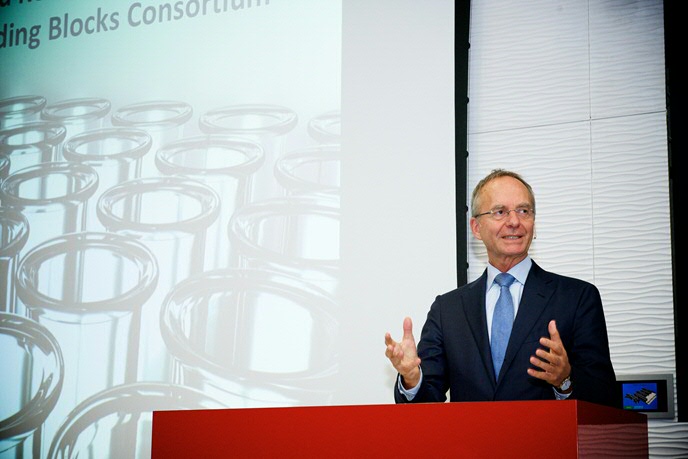
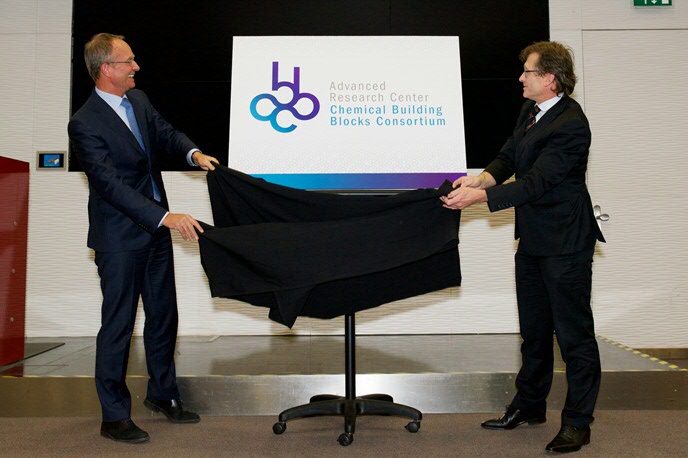
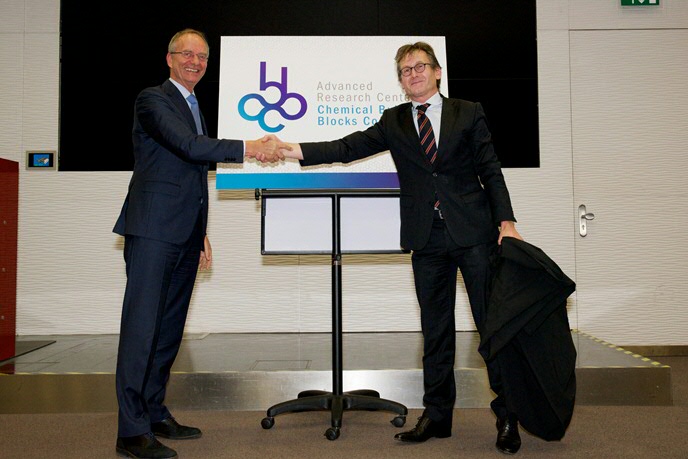
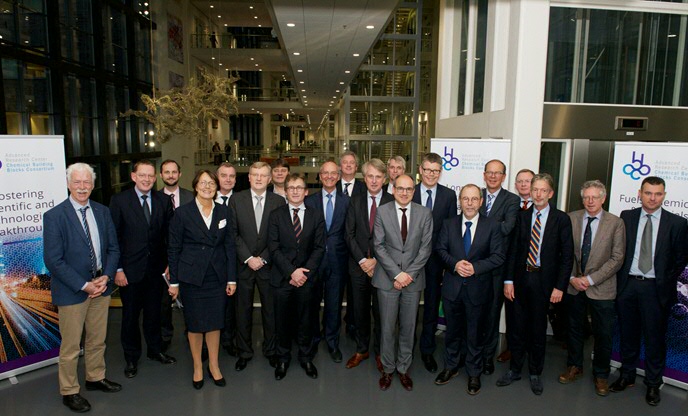
Meer nieuws
-
17 februari 2026
De lange zoektocht naar nieuwe fysica
-
10 februari 2026
Waarom slechts een klein aantal planeten geschikt is voor leven
